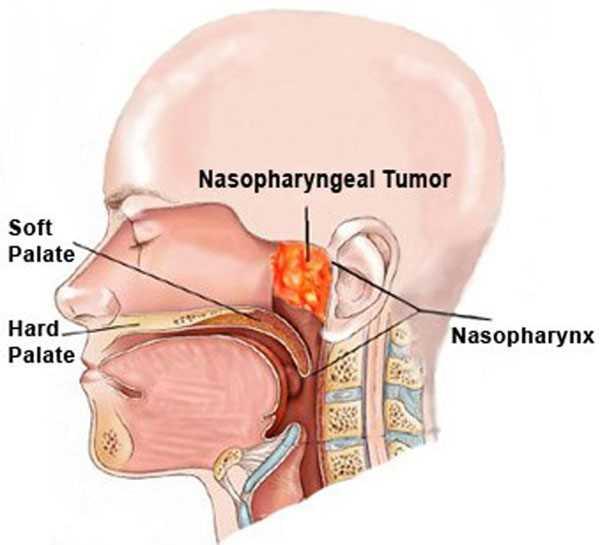Thông báo
Vui lòng điền vào thông tin bên dưới
Khẩn cấp
Early detection and diagnosis of Nasopharyngeal Carcinoma
Nasopharyngeal Carcinoma is a common type of head and neck cancers. Narrow Banding Imaging (NBI) Endoscopy utilizing a narrow spectrum light can help detect early signs of Nasopharyngeal Carcinoma.
What is Nasopharyngeal Carcinoma?

Nasopharyngeal Carcinoma or Nasopharyngeal Cancer (NPC) is the predominant tumor type arising in the nasopharynx (the narrow tubular passage behind the nasal cavity). Worldwide, there are around 86.000 incident cases and 50.000 deaths by NPC annually.
Etiology and risk factors
Scientists have not been quite sure about what exactly cause Nasopharyngeal Cancer. However, the cancer has been strongly linked to the following factors:
- Epstein-Barr Virus (EBV) infection.
- Diet: It has been suggested that the high consumption of salted fish, salt-cured food, fermented food (fermented meat, eggs, fruits, vegetables) which contain high levels of nitrosamine is associated with the risk of Nasopharyngeal Cancer.
- Genetic factor: A large body of evidence indicates that genetic factors play a significant role in Nasopharyngeal Cancer.
- Tobacco and alcohol also increase the risk of Nasopharyngeal Cancer.
Common symptoms
- Nose: Nasal obstruction or stuffiness, nose bleeding.
- Ear: Ear infection, middle ear fluid, tinnitus, hearing loss.
- A lump in the neck (the most common symptom).
- Frequent headache.
- Facial pain, numbness or paralysis.
- Unexplained weight loss.
- Sore throat.
How to early diagnose Nasopharyngeal Carcinoma?
- In its early stages, Nasopharyngeal Cancer may not cause any specific symptoms. When noticing any unusual and persistent symptoms as above, patients should see their doctor for a thorough consultation and necessary tests including nasopharyngoscopy. Nasopharyngoscopy helps the doctor check the area for abnormal growths, bleeding or other problems.
- If there are any abnormal changes detected after nasopharyngoscopy, an NP biopsy (extraction of a piece of abnormal tissue in the nasopharynx to examine it more closely) will be recommended.
- Imaging tests can help spot Nasopharyngeal Cancer or determine if it has spread. Imaging tests may include CT scan, MRI, ultrasound of the neck.
- EBV testing or other blood tests can also be performed.
Treatment of Nasopharyngeal Carcinoma
Treatment of Nasopharyngeal Cancer may include radiation therapy, chemotherapy, surgery or combination of many therapies. Highly positive treatment outcomes are predicted in patients at the early stage of the tumor.
Can Nasopharyngeal Carcinoma be prevented?
A healthy lifestyle may lower the risks of Nasopharyngeal Cancer:
- Have a diet rich of fruits and vegetables.
- Avoid salt-cured food and fermented food that contain high levels of Nitrosamine.
- Do not smoke, do not drink a lot of alcohol.
- Do regular exercises to improve body resistance.
- Do regular health check-ups.
The ENT Department of American International Hospital (AIH) is fully equipped with diagnostic tools, including the NBI (Narrow Banding Imaging) Endoscopy system. This is a painless technique that can make patients feel comfortable during the endoscopic process. NBI is currently applied in many countries around the world. The advanced endoscopic technique utilizing a narrow spectrum light (monochromatic light) can provide a significantly higher contrast between blood vessels and the surrounding tissue. Since small tumors are often surrounded by many blood vessels, NBI helps detect these tumors at an early stage and analyze these areas accordingly. Thus, NBI supports the early and precise optical diagnosis of very small ENT cancer lesions, which as a result allows better treatment and more accurate follow-ups.
Nguyen Ba Phuoc, MD.
ENT Specialist, American International Hospital (AIH)
Tìm kiếm
Tin tức
Bác sĩ








Để lại bình luận